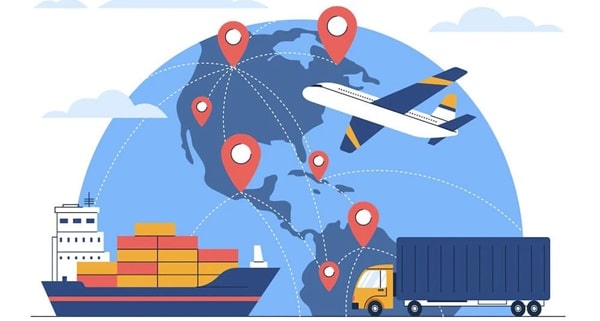Many businesses, brands, or companies rely on international trade to expand their operations in hopes to make more profits, you know? Well, we all are kinda aware of that, but what exactly are the actual benefits and drawbacks of this international trade thing? If you are feeling intrigued about just that right now, then keep on reading because today’s post is all about giving you the lowdown on the possible advantages and disadvantages of international trade. If that’s what you are here for, shall we get started then?

Advantages of International Trade
1. Jumpstarting Growth Beyond Borders
So here’s the thing about international trade, it’s pretty much a game-changer for companies itching to break free from their domestic shell. Imagine this: businesses stepping out into the big, wide world of foreign markets. What they’re looking at isn’t just a spike in sales. Oh no, it’s a whole new playground of diverse markets, each with its own set of rules and players. This isn’t just about bringing in more cash, it’s about soaking up every bit of how folks abroad tick, what they like, and how markets dance to different tunes.
2. Improvement in Financial Performance
Alright, let’s get down to the whole global expansion thing. It’s like giving your company’s financials a supercharge. By swinging into global markets, businesses mix up where they’re making their money, stepping clear of the rollercoaster ride of their own market’s ups and downs. Plus, being in different playgrounds means you can play smarter, not harder, you know, getting more bang for your buck and pumping up those profit margins. And let’s not forget, playing across borders lets you sharpen up your production and sales strategies, squeezing out every last drop of financial goodness.
3. Playing It Smart with Risk
Now, let’s talk big wins of going global: spreading out your risks. Think about it for a sec though, it’s like that old quote that you shouldn’t be putting your goodies in one basket. Let’s say your home market hits a rough patch, and by that, we mean things like recession, political hiccups, and things like that. Having your hands in a few different international trades can keep your business steady. This is mega important for those industries where the game changes faster than you can blink like in new tech, shifting customer cravings, the lot.
4. Raising the Bar in the Market
Going global? That’s your cue to up your game. Companies that hustle in multiple markets have to keep their edge sharp and their eyes on the prize you know? This relentless drive to outdo themselves means they’re dishing out top-tier products and services, and who gets to enjoy this? Customers around the globe. It’s all about pumping resources into the latest tech, being on the bleeding edge of research, and rolling out stuff that has people lining up. That’s what raising the bar means, right?
5. Beneficial Exchange Rates
Let’s swing over to currency exchange rates, because they’re no small thing in the world of international trade. Let’s say your home currency decides to take a little dip against your trading nation’s. Suddenly, your exports are the belle of the ball, sales go through the roof, profits soar. But it’s a two-way street, a beefed-up home currency means importing stuff gets cheaper, and that’s a win for businesses and consumers feasting on imported goods.
6. Keeping the Cash Flowing
Wrapping it up, international trade’s like having a bunch of cash faucets in different rooms. It’s crucial, not just for staying afloat but for sailing smooth, you know? You’re not just riding on the waves of your home market’s mood swings, which can flip faster than a pancake thanks to local drama, be it political antics, economic zigzags, or the latest consumer trends. Nah! Instead, by spreading your wings across various international markets, you can balance out a slump in one spot with a boom in another.
Disadvantages of International Trade
1. Political Twists and Turns
Now, let’s start with the political scene. It’s like a game of chess where one move in one country can topple the whole set of international trade relations. Companies, you see, they’re left juggling these political puzzles, trying to keep their game strong and profits from taking a nosedive.
2. The Currency Exchange Rate Thing
Okay, you see, exchange rates are like a rollercoaster, up one minute, down the next. This wild ride can make or break the whole deal of trading across the seas. Businesses are out there, scratching their heads, figuring out how not to let these unpredictable currency waves wash away their hard-earned money.
3. Cultural Mix-ups
Now, imagine this, you’re all set for a trade, but whoops, cultural differences swoop in. It’s like trying to read a book in a language you barely know. Companies need to be super tuned-in to these cultural nuances to make sure everything goes smoothly, you know?
4. Economic Shadow-Following
Here’s a bit of a sticky situation. Developing countries sometimes end up shadowing the developed ones a bit too closely. It’s like they’re stuck in this loop of economic follow-the-leader, which can lead to some serious exploitation and put a speed bump on their own economic journey.
5. Going Overboard with Resources
Countries can sometimes get a little too eager to pump out exports, pushing their natural resources to the edge. It’s like they’re running a sprint in a marathon, not exactly a strategy for the long haul, especially when you think about the planet.
6. The Credit Risk Tangle
Stepping into international trade can be like walking a tightrope with credit risks lurking below. Companies have to be pretty cautious here, keeping their cash flows in the green zone and steering clear of those financial traps.
7. Those Extra Costs
Trading internationally isn’t just a simple exchange, oh no. There are all these extra expenses sneaking in like shipping, customs, and whatnot. These can pile up pretty quick, taking away the overall profits, faster than you realize.
Conclusion
That’s pretty much it for today. Now, with this information right in front, you must be feeling a lot clearer in your head about this whole international trade thing. And we hope that today’s post was helpful enough to clear up some doubts for you.

Meet Suhas Harshe, a financial advisor committed to assisting people and businesses in confidently understanding and managing the complexities of the financial world. Suhas has shared his knowledge on various topics like business, investment strategies, optimizing taxes, and promoting financial well-being through articles in InvestmentDose.com


